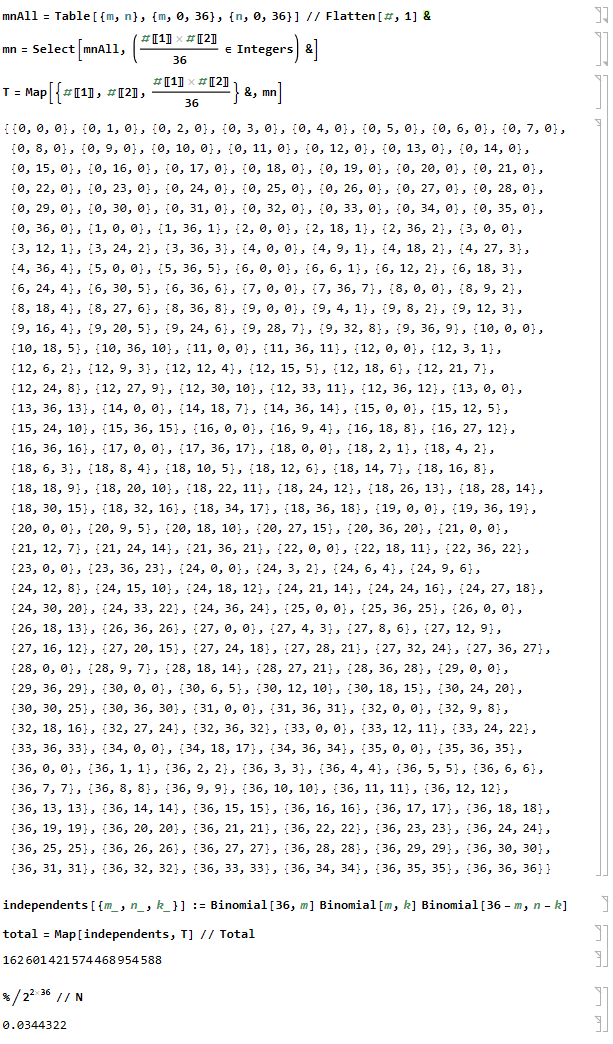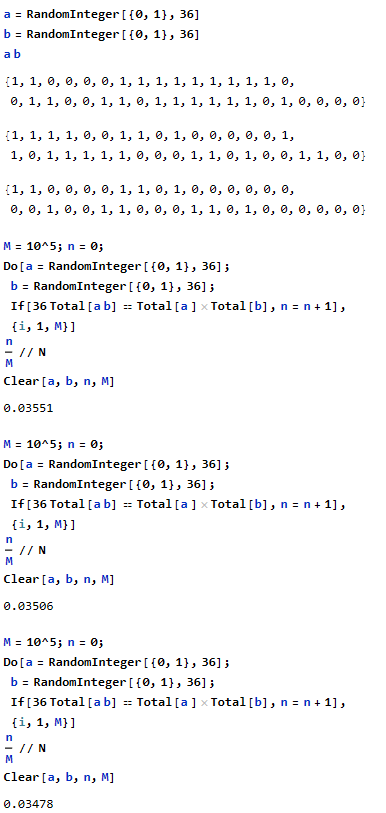The probability -- say $p$ -- for the experiment of rolling two different colored dice is
$$\frac{162601421574468954588}{2^{2\times36}}\approx0.0344322.$$
Here it is assumed that the random sets $A$ and $B$ are selected independently and uniformly at random (from the power set of the set $[6]^2=\{1,\dots,6\}\times\{1,\dots,6\}$), so that $P(A=a,B=b)=1/2^{2\times36}$ for all $a\subseteq[6]^2$ and $b\subseteq[6]^2$.
So, $p$ is the probability that the random sets $A$ and $B$ are independent. That is, $p$ is the probability that $\dfrac{|A|}{36}\dfrac {|B|}{36}=\dfrac{|A\cap B|}{36}$, where $|\cdot|$ denotes the cardinality.
Indeed, for the set $[36]_0:=\{0,\dots,36\}$, let $T$ denote the set of all triples $(m,n,k)\in[36]_0^3$ such that
$\dfrac m{36}\dfrac n{36}=\dfrac k{36}$ or, equivalently, $mn=36k$.
Let $I$ denote the set of all pairs $(a,b)$ of subsets of the set $[36]_0$ such that $a$ and $b$ are independent. Then $$(a,b)\in I \iff (|a|,|b|,|a\cap b|)\in T.$$
For any given $(m,n,k)\in T$,
$$N_{m,n,k}:=\big|\{(a,b)\in I\colon (|a|,|b|,|a\cap b|)=(m,n,k)\}\big|=\binom{36}m\binom mk \binom{36-m}{n-k}
=\frac{36!}{k!(m-k)!(n-k)!(36-m-n+k)!}.$$
So, the probability that the random sets $A$ and $B$ are independent is
$$p=\frac1{2^{2\times36}}\sum_{(m,n,k)\in T}N_{m,n,k}
=\frac{162601421574468954588}{2^{2\times36}},$$
as claimed.
Here are details of the calculations, with Mathematica:

The value $p\approx0.034$ agrees with simulation:



